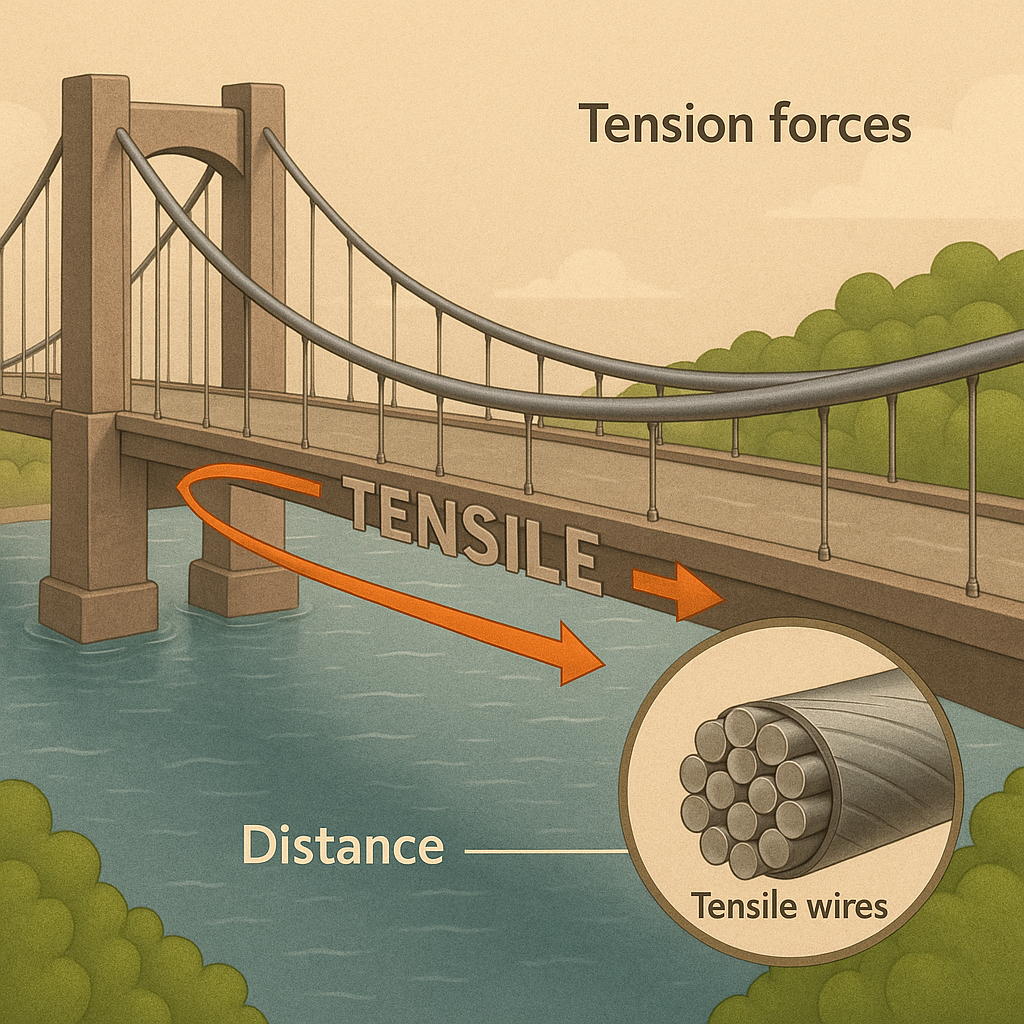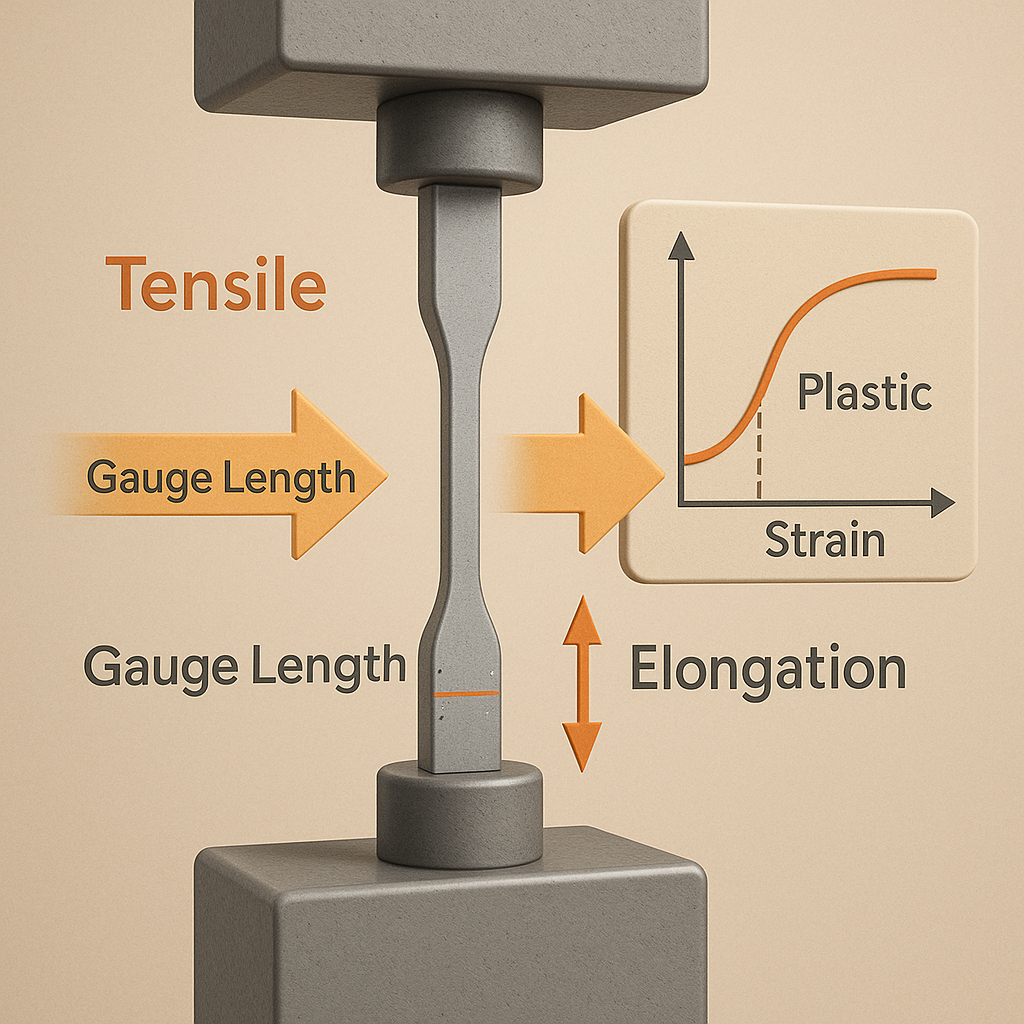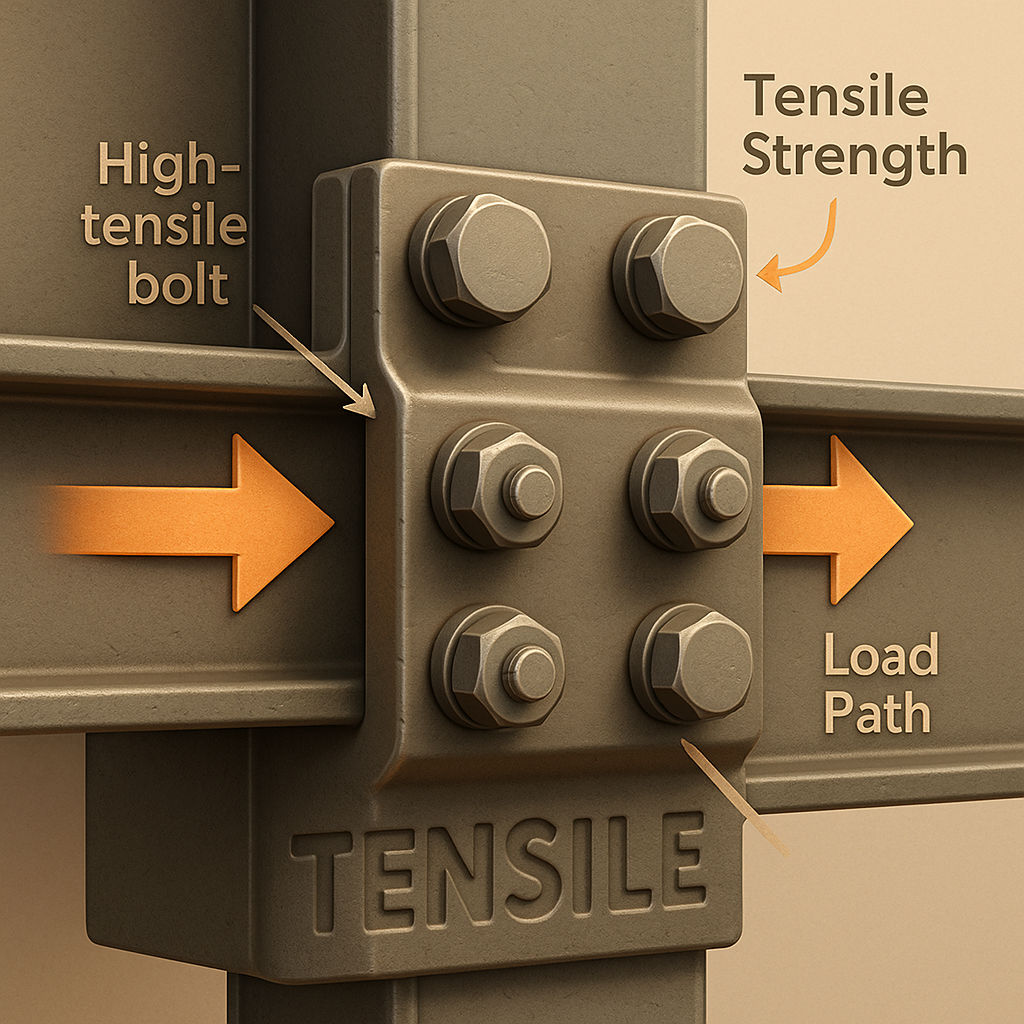Tensile
Definition
Tensile describes the property of a material that allows it to withstand tension or to be stretched; relating to tension. It is often used in the context of mechanical strength and material science.
Parts of Speech
- Adjective
Pronunciation
American English
- IPA: /ˈtɛnsaɪl/
- Respelling: TEN-syle
British English
- IPA: /ˈtɛnsaɪl/
- Respelling: TEN-syle
Etymology
Mid 19th century: from Latin tēnsilis ‘that may be stretched,’ from tendere ‘to stretch, strain.’
Derivatives
- tensility (noun)
- tensional (adjective)
- tensilely (adverb)
Synonyms
- ductile
- extensible
- stretchable
- pliable
- elastic
Antonyms
- inelastic
- rigid
- brittle
- stiff
Usage
"Engineers measured the tensile strength of the steel cable before installation."
"The fabric’s tensile properties make it ideal for outdoor tents."
Related Terms
- Tension: The force exerted by stretching.
- Tensile strength: The maximum stress a material can withstand while being stretched.
- Compression: The force applied to compress or squeeze.
- Ductility: The ability to deform under tensile stress.
- Elasticity: The ability to return to original shape after deformation.
Detailed Definitions
Adjective
- Capable of being stretched under tension – able to endure stretching forces without breaking.
- Example: "The cable’s tensile wires allowed it to span the river without sagging."
- Relating to tension in mechanical contexts – describing tests or measurements that apply pulling forces to evaluate material performance.
- Example: "They conducted tensile tests to evaluate the metal’s performance."
- Characterized by the ability to resist being pulled apart – having strength to withstand forces that attempt to separate the material.
- Example: "High-tensile bolts are used in load-bearing structures."
tensile



🇨🇳 Mandarin (Simplified Chinese)
- 抗拉的
- IPA Pronunciation: /kʰɑŋ lɑː dɪ/
- Respelling in English: khang la di
🇮🇳 Hindi
- प्रसारणीय
- IPA Pronunciation: /pɾə.saː.ɾə.niː.jə/
- Respelling in English: prasaarneey
🇪🇸 Spanish
- De tracción
- IPA Pronunciation: /de traˈkθjon/
- Respelling in English: de trak-thon
🇫🇷 French
- De traction
- IPA Pronunciation: /də trak.sjɔ̃/
- Respelling in English: de trak-syon
🇸🇦 Modern Standard Arabic
- شدادي
- IPA Pronunciation: /ʃadadiː/
- Respelling in English: shadadee
🇧🇩 Bengali
- টেনসাইল
- IPA Pronunciation: /ʈen.sa.il/
- Respelling in English: tensail
🇷🇺 Russian
- Растягивающий
- IPA Pronunciation: /rəstʲɪˈɡʲivəjuʂʲɪj/
- Respelling in English: rastyagivayushchiy
🇵🇹 Portuguese
- De tração
- IPA Pronunciation: /dʒi tɾaˈsɐ̃w̃/
- Respelling in English: dji tra-saun
🇮🇩 Indonesian
- Tarik
- IPA Pronunciation: /ta.rik/
- Respelling in English: tarik
🇩🇪 German
- Zug-
- IPA Pronunciation: /tsʊk/
- Respelling in English: zuk
🇯🇵 Japanese
- 引張りの
- IPA Pronunciation: /hikibaɾi no/
- Respelling in English: hikibari no
🇻🇳 Vietnamese
- Căng
- IPA Pronunciation: /kəŋ/
- Respelling in English: kang
🇰🇷 Korean
- 인장의
- IPA Pronunciation: /in.dʑaŋ.ɯi/
- Respelling in English: injang-ui
🇹🇷 Turkish
- Çekme
- IPA Pronunciation: /tʃekme/
- Respelling in English: chekme
🇵🇰 Urdu
- کھچاؤ کی
- IPA Pronunciation: /kʰɪtʃaː.oː kiː/
- Respelling in English: khichaao ki





